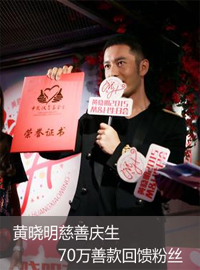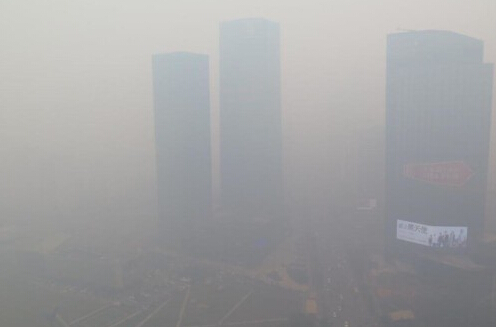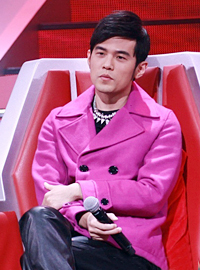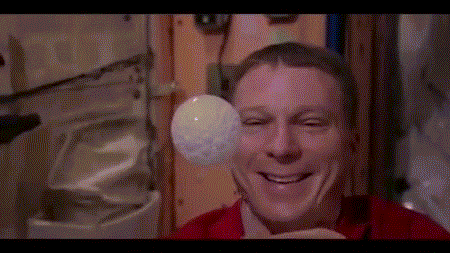
There’s so much that gets judged in a job interview. From what you wear to how you shake the interviewer’s hand, to how confident you appear and sound when you introduce yourself. Almost everything you do during a job interview will be under the microscope, including all of your idiosyncrasies.
在一场面试中需要评判面试者许多东西。从你的穿着打扮到你与考官握手的方式,以及自我介绍时表现得自信与否。你在面试中的所作所为都会被放在显微镜下观察,甚至包括你所有的小癖好。
Unfortunately, whether you like it or not–recruiters are humans with biases, and sometimes those biases include behaviors that we might think are no big deal, but for reasons unknown, they just absolutely can’t stand. Every recruiter is different, but here are a few habits that can have a big influence in terms of how they perceive you as a job candidate.
不幸的是,无论你喜欢与否,我们都得承认面试官有自己的偏好,有时这些偏好包括一些我们不能理解的行为,但是由于不知名的原因,他们无法忍受。每位面试官都是不同的,但总有一些习惯会影响考官对应聘者的看法。
1. Fidgeting
坐立难安
Too much movement shows that you’re nervous. And while recruiters expect some of that, it can be extremely distracting for hiring managers when they see you constantly shifting. Body language is only relevant within the context of the specific interview.
动作太多会显得你很紧张。尽管面试官需要你稍微活跃一些,但是当面试官看见你一直动来动去,这会很分散人的注意力。肢体语言的运用应该与面试的内容紧密相关。
2.Not Smiling
毫无微笑
Yes, it’s important to appear serious, but recruiters are human beings who still respond to visual cues, and that includes smiles. Imagine you’re meeting someone for the first time, and while they shake your hand, their mouth remains in a neutral expression. It can come across as a little rude right? A job interview is no different. Denise Dudley, professional trainer previously told Fast Company that smiling makes someone appear more attractive, intelligent, relaxed, and sincere compared to those who didn’t smile. She went on to say that seeing someone smile activates the reward centers in our brain, releasing those feel-good neurotransmitters.
表现得严肃认真很重要,但是考官也是人,他们也会对视觉迹象做出回应,这就包括微笑。想像一下你与某人第一次见面,当你与他们握手时,你不苟言笑。这似乎会有点太粗鲁了吧?工作面试也没什么不同。专业培训师Denise Dudley告诉Fast Company与那些不笑的人,微笑的人会显得更有魅力,更聪明,更自在,更真诚。她继续说到看见某人微笑,这会激发我们大脑中的奖励机制,释放感觉良好的神经递质。
3. Stumbling On The Interviewer’s Name
念错考官名字
Some people have difficult names, and while it might be socially acceptable at a cocktail party to stumble across someone’s difficult name and then casually say “sorry, I’m really really terrible with names!”, a job interview is a place where you want to avoid this from happening. In a previous article for Fast Company, emotional intelligence expert Harvey Deutschendorf suggested that if we’re not sure how to pronounce someone’s name when they introduce themselves to us, we should ask them to clarify and repeat it back to them until we get it right. Deutschendorf wrote, “This may feel a little awkward but it shows you actually care–and it’s better than mishearing a name, not bothering to correct it, and bungling (repeatedly) later.”
有些人的名字很复杂,如果你在鸡尾酒会上说:“对不起,我真的不认识这个名字”这是可以接受的。但使工作面试是一个必须避免发生这样糗事的地点。在Fast Company以前的一篇文章中,情商专家Harvey Deutschendorf建议到,当某人自我介绍时,如果我们不知道如何念他的名字,我们应该让他重复一遍直到我们理解了。“这可能会有点尴尬,但是这表明你很在乎,这比听错别人名字还不去纠正,并且之后一直笨拙地念错要好得多”。
4. Writing Terrible Thank-You Notes
过长的感谢信
Perhaps the interview went well, and you avoided making any blunders. But you can still ruin the great first impression they had of you by doing the wrong thing after the interview. First, it’s important to point out that not sending a thank-you note is a no-no. But so is sending overly long notes that make the recruiter go, “I’ll read this later” or notes that rehash your entire conversation. As HR executive search firm partner Mathilde Primula wrote in a 2016 Fast Company article, “hiring managers and recruiters are always looking for reasons to push one candidate toward the front of the pack and disqualify others–that’s their job. So that means that what you may think of as a simple convention of thank-you note writing is actually a blunder that your interviewer sees multiple times a day. That’s bad.”
尽管可能面试一切顺利,你极力避免出错。但是在面试后你的错误做法还是可能会毁掉他们对你良好的第一印象。首先,你必须知道面试后不写感谢信纸条的做法是不可取的。但是过长的感谢便条会让面试官“我稍后再读”或者重新整理一下与你的对话。正如人力资源搜索公司合作伙伴Mathilde Primula在2016年 Fast Company的一篇文章中写到:“招聘经理和招聘人员会寻找各种让一个人脱颖而出的理由,并淘汰掉其他人——这是他们的工作。所以一封作为惯例的感谢便条实际上可能会是一个错误,如果考官一天内看见太多次的话。这真是太糟糕了。
5. Overusing “We” When Talking About Past Successes
回顾过去的成功时过多使用“我们”
A job interview is a sales pitch for yourself, not anyone else. Yes, you do want to brag about huge achievements that you were part of–even if you didn’t do all the work. However, it’s important to highlight the specific part you played so that the hiring manager can determine how your experiences might translate to the role that you’re interviewing for.
遂自荐,不需要你言及他人。当然,你很想彰显你是成功中不可或缺的一部分,即便这并非是你一个人完成的。然而,强调你在工作中负责的角色是很重要的,以便于面试官好评估以你的经验能否胜任应聘的岗位。
6.Speaking With Sloppy Grammar
用语不严谨
You’ve meticulously checked your cover letter and resume to make sure that they’re grammatically error-free, but you should also make sure that those errors don’t creep into your speech. As Samantha Cole wrote in a 2014 Fast Company article, your use of things like double negatives can hamper your credibility with the recruiter. Of course, it’s important to be yourself, but just like there is an appropriate etiquette to communicating professionally via email, there’s also an appropriate etiquette for verbal communication in the workplace.
你仔细地检查了求职信和简历以确保没有语法错误,同时你也必须保证讲话的过程中没有语法错误。正如Samantha Cole在2014年Fast Company里的一篇文章中写到,使用双重否定会降低你和应试官的信誉。当然,做你自己也是很重要的,但是正如通过邮件沟通有自己的礼仪方式,口头交谈也需要恰当的方式。
7.Using Too Many Filler Words
使用过多的填充词
Unfortunately, saying certain words too often can make you seem less competent, and this is definitely not the impression you want to give when you’re in a job interview. Using filler words such as “like”, “actually”, “really”, or “you know” might come second nature in casual conversations, but you should do your best to stay away from them when you’re speaking to a recruiter or hiring manager.
不幸的是,当你经常重复某个词时这会让你看起来有些无能,绝对不能在面试中留下这种印象。诸如“像”,“实际上”,“真的“,“你知道”的填充词会自然而然地出现在口头表达中,但是当你与考官交谈时一定要避免使用这类词。
Deborah Tannen, professor of linguistics at Georgetown University previously told Fast Company that this habit probably comes from our impulse to fill space when we’re thinking about what we want to say. The result, Tannen says, is that the recruiter or hiring manager might think you’re not confident in what you’re saying. So what should you do instead? Tannen suggests pausing when you find that you need some time to gather your thoughts.
乔治城大学语言教授Deborah Tannen之前告诉Fast Company,这种习惯可能来自于我们想要填补思考说话地这段空白时间的冲动。Tannen说,结果往往会让考官认为你对自己说的没有自信。那么你应该做什么?Tannen建议当你需要时间去组织思绪时不如就停一下,什么都不说。
来源:爱语吧
爱语吧作者:Lauren





































































































